Post by Mark Lavallee on Sept 18, 2012 10:02:06 GMT -5
Now we have come upon the last Tull album featuring the classic lineup of Anderson, Barre, Evans, Barlow, Palmer and Glascock,
1979's Stormwatch. The final part of a "folk" trilogy following Songs From The Wood and Heavy Horses. I don't hear it myself but it's always grouped that way.

Released on September 14th, 1979 worldwide the album would peak at #22 in the US and #27 in the UK, their worst charting album in the UK up to that point and their worst placing in the US since the debut back in 1968.
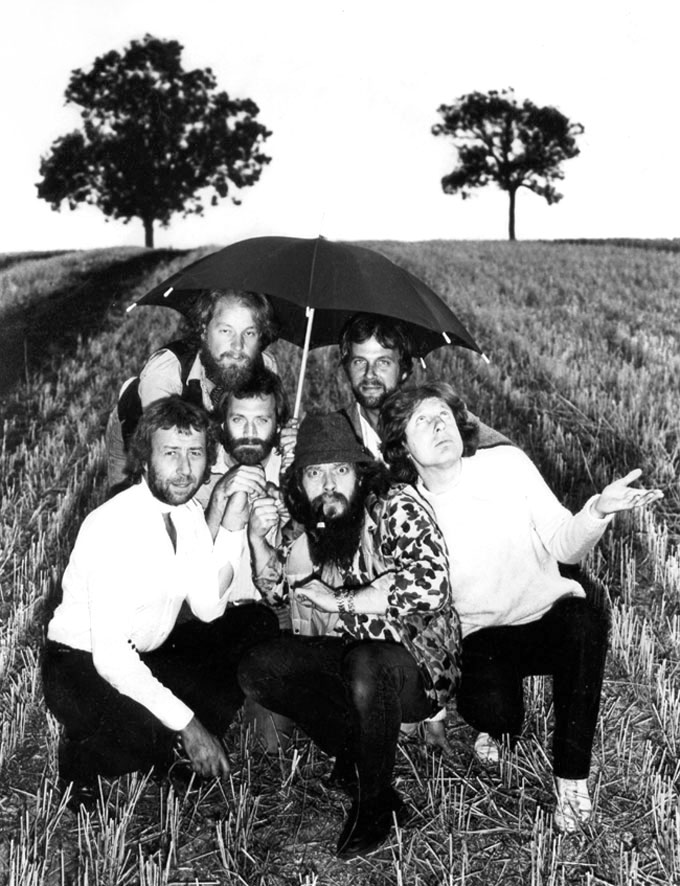
The album is often overlooked, I think this owes to the complete lack of humor that is found on previous albums, for this is a
very dark and serious affair. With a very heavy focus on current events and problems with the environment, money and govt. It
can't be because of the music contained within because this is a wonderful album. Like Too Old To Rock 'n' Roll this album really requires a lot of attention to fully appreciate.

Sadly John Glascock's heart condition which saw him sidelined during the 1978 US leg of the Heavy Horses tour would eventually lead to his death and after a start he was unable to finish recording on the album, indeed he only appears on three tracks (Orion, Flying Dutchman and Elegy), his presence quite notable when he appears, for all the other tracks Ian Anderson took over bass duties.
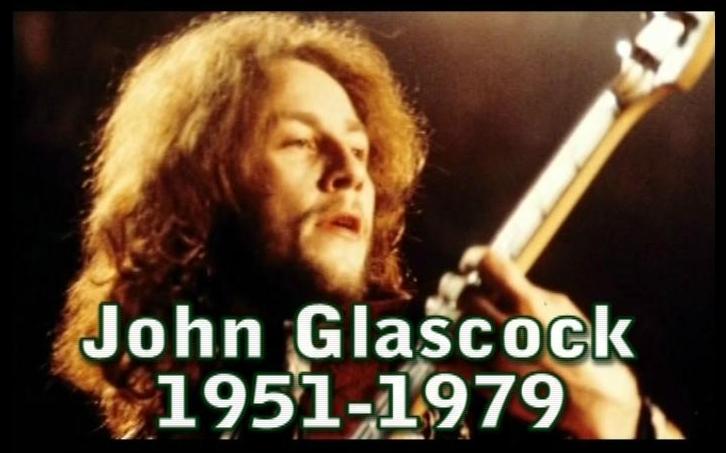
This is a much heavier album than what preceeded it and much more oriented towards rock and roll than the folk rock of the prior 2 albums. Heavy guitar riffs take the lead and while the flute doesn't disappear it's use is much more aggressive and less frequent than in the past. Almost a concept album predicting catastrophe and it's aftermath.

Side A opens with the topical North Sea Oil, straight away attacking the greed that fuels the oil industry. Musically in line
with the way things were headed on Heavy Horses. A mildly aggressive rocker, heavy emphases on the guitar, some nice stabs of flute inbetween Barre's lines. A geat album opener. This was the first single released from the album, unsurprisingly it went nowhere.
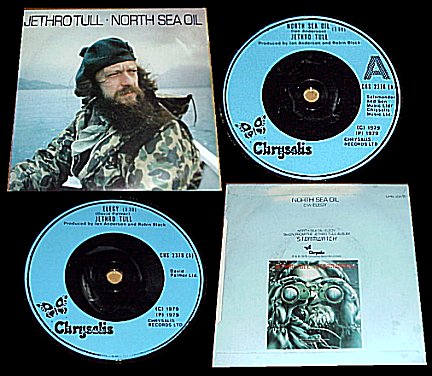
Up next is the song Orion, a direct sequel to Heavy Horses' Weathercock. A plea for help from the heavens, like the appeal in Weatherock. On this album nature is used to great effect throughout. Soft, acoustic verses give way to a heavy electric chorus and back again.
Next we have the tender ballad Home, David Palmer's orchestration really makes this one. A similar sentiment as expressed earlier in tunes like Journeyman and Fires At Midnight. Released on an EP which sadly went nowhere, a trend!

Then we have the centerpiece of the album, the brilliant mini-epic Dark Ages. The song laments the coming of a metaphorical
winter for humanity and the fact that people seem to be apathetic to their fate. Dark and ominous, it's lengths let's it take it's time building to the inevitable fury that gives the song such a sense of forboding throughout. Brillint orchestration,
short, sharp piano chords and guitar riffs give the sense of impending explosion throughout, Barriemore Barlow really plays with the listener, you're on the edge of your seat throughout waiting for the climax, and when it comes it sure doesn't disappoint.
The side concludes with the instrumental Warm Sporran. A sort of baroque march, simple but effective. And again we have a very bizarre choice for a single, which of course failed to chart, anywhere. A Sporran is the purse like thingy worn on the front of the traditional Scottish kilt.
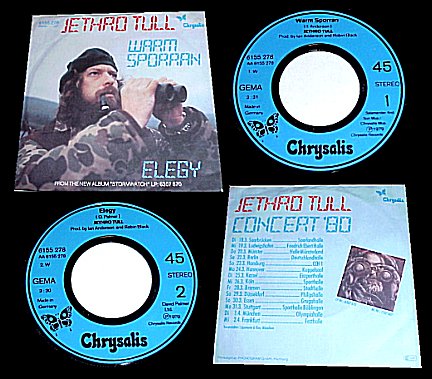
Side B opens with the fast, frantic rocker Something's On The Move. Here the signs of impending doom from the first side have all been ignored and the metaphorical winter has descended upon the world.
Next up is Old Ghosts, it's haunting lyrics countered with a rather pastoral arrangement, though there's something just ever so creepy about it's arrangement.
Dun Ringill is the shortest song on the album at only 2:41 yet it's my personal favorite. A tight acoustic piece with a beautifully haunting vocal in the verses. It's just dripping with atmosphere. Again lyrically it's referring to ancient tradition as a source of inspiration for modern man "We'll wait in stone circles; 'til the force comes through; lines join in faint discord; and the stormwatch brews; a concert of kings; as the white sea snaps; at the heels of a soft prayer; whispered" Dunringill lies on the shores of Loch Slapin, Isle of Skye which is part of the Straithaird estate where Anderson lived at the time. The ruins of Castle Ringill 900 years ago was the seat of the Clan Fingon and just a few hundred yards from the house Anderson lived in.

Plus there's a very dated, though quite appropriate video for this one...
Up next the other mini-epic of the album, The Flying Dutchman. John Evans wonderful piano is brought to the front here as
Anderson very cleverly uses the legend of the Flying Dutchman, a Dutch ship whose captain is doomed to sail the seas until the day of judgment as a metaphor for the Vietnamese who fled their country by boat only to find most countries refused to receive them as refugees. I've always loved the line "Death grinning like a scarecrow." The way the song is transformed by the introduction of new instruments roughly every minute in is quite clever. So very dramatic and chilling, a real beautiful piece of music, and Anderson's best flute solo on the album by far.
The album concludes with the David Palmer penned instrumental Elegy about the death of his father. One of the most beautiful
instrumentals ever written for a rock album, a very Bach inspired classical piece. Perfectly shows off David Palmer's compositional genius.
The remaster of the album comes with four bonus tracks. First up is the 1978 single A side A Stitch In Time which was released to promote the live Bursting Out album. The old proverba stitch in time saves nine, simple song about working hard to save time in the end. Recorded during the Heavy Horses sessions, the song would fit perfectly on the album.
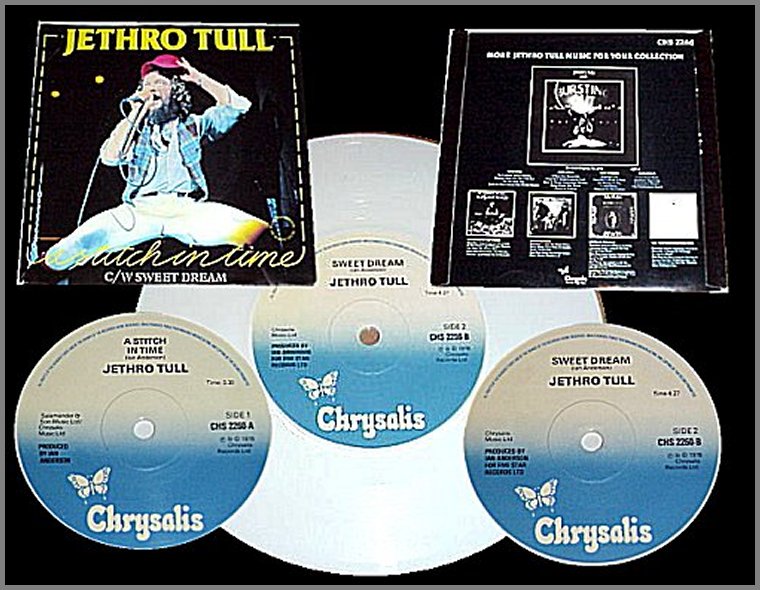
Up next, the outtake Crossword, an excellent song with the great chorus hook "Your life is a clue in the crossword", a nice rocker that should have made the album. Next up another outtake from the album and the one song recorded that most would fit the "folk" tag that this one has been saddled with all these years, Kelpie. The Kelpie is a Scottish legend about an aquatic horse that is an agent of Satan that lures it's victims to a watery grave. It has an appropriately folk rock backing that would have fit perfectly on Songs From The Wood and an incredibly catchy melody. Quite unfortunate that songs of this caliber were left to linger in the vaults for so long. This would have been a stronger single than North Sea Oil, Warm Sporran, Home or Something's On The Move (released in France only.)
The final bonus track is the instrumental King Henry's Madrigal, also known as Pasttime In Good Company composed by none other than King Henry VIII!! This was included on the Home EP. If King Henry had a rock band it would have sounded like this.
Final thoughts:
The real dark horse of Tull's 70's peak. This album just doesn't geet the attention it deserves. It's a very dark album. Musically it fully explores the changing sound that was signalled on Heavy Horses. Some of Anderson's most direct compositions yet in songs like Dark Ages and North Sea Oil. Also, a softer side is shown in songs like Orion and Home. A real grower of an album, give it some time and it'll work it's way up into your absolutely essential pile.
Final rating 4.5 out of 5
After this, massive changes within the band. Anderson went on to outright fire keyboardists John Evans and David Palmer. After
the death of John Glascock drummer Barriemore Barlow finished out the tour and then left the group. Tull was reduced to a duo of Ian Anderson and Martin Barre. Anderson decided to record a solo album but as we'll see with the next review that didn't quite
work out as planned...
1979's Stormwatch. The final part of a "folk" trilogy following Songs From The Wood and Heavy Horses. I don't hear it myself but it's always grouped that way.

Released on September 14th, 1979 worldwide the album would peak at #22 in the US and #27 in the UK, their worst charting album in the UK up to that point and their worst placing in the US since the debut back in 1968.

The album is often overlooked, I think this owes to the complete lack of humor that is found on previous albums, for this is a
very dark and serious affair. With a very heavy focus on current events and problems with the environment, money and govt. It
can't be because of the music contained within because this is a wonderful album. Like Too Old To Rock 'n' Roll this album really requires a lot of attention to fully appreciate.

Sadly John Glascock's heart condition which saw him sidelined during the 1978 US leg of the Heavy Horses tour would eventually lead to his death and after a start he was unable to finish recording on the album, indeed he only appears on three tracks (Orion, Flying Dutchman and Elegy), his presence quite notable when he appears, for all the other tracks Ian Anderson took over bass duties.

This is a much heavier album than what preceeded it and much more oriented towards rock and roll than the folk rock of the prior 2 albums. Heavy guitar riffs take the lead and while the flute doesn't disappear it's use is much more aggressive and less frequent than in the past. Almost a concept album predicting catastrophe and it's aftermath.

Side A opens with the topical North Sea Oil, straight away attacking the greed that fuels the oil industry. Musically in line
with the way things were headed on Heavy Horses. A mildly aggressive rocker, heavy emphases on the guitar, some nice stabs of flute inbetween Barre's lines. A geat album opener. This was the first single released from the album, unsurprisingly it went nowhere.

Up next is the song Orion, a direct sequel to Heavy Horses' Weathercock. A plea for help from the heavens, like the appeal in Weatherock. On this album nature is used to great effect throughout. Soft, acoustic verses give way to a heavy electric chorus and back again.
Next we have the tender ballad Home, David Palmer's orchestration really makes this one. A similar sentiment as expressed earlier in tunes like Journeyman and Fires At Midnight. Released on an EP which sadly went nowhere, a trend!

Then we have the centerpiece of the album, the brilliant mini-epic Dark Ages. The song laments the coming of a metaphorical
winter for humanity and the fact that people seem to be apathetic to their fate. Dark and ominous, it's lengths let's it take it's time building to the inevitable fury that gives the song such a sense of forboding throughout. Brillint orchestration,
short, sharp piano chords and guitar riffs give the sense of impending explosion throughout, Barriemore Barlow really plays with the listener, you're on the edge of your seat throughout waiting for the climax, and when it comes it sure doesn't disappoint.
The side concludes with the instrumental Warm Sporran. A sort of baroque march, simple but effective. And again we have a very bizarre choice for a single, which of course failed to chart, anywhere. A Sporran is the purse like thingy worn on the front of the traditional Scottish kilt.

Side B opens with the fast, frantic rocker Something's On The Move. Here the signs of impending doom from the first side have all been ignored and the metaphorical winter has descended upon the world.
Next up is Old Ghosts, it's haunting lyrics countered with a rather pastoral arrangement, though there's something just ever so creepy about it's arrangement.
Dun Ringill is the shortest song on the album at only 2:41 yet it's my personal favorite. A tight acoustic piece with a beautifully haunting vocal in the verses. It's just dripping with atmosphere. Again lyrically it's referring to ancient tradition as a source of inspiration for modern man "We'll wait in stone circles; 'til the force comes through; lines join in faint discord; and the stormwatch brews; a concert of kings; as the white sea snaps; at the heels of a soft prayer; whispered" Dunringill lies on the shores of Loch Slapin, Isle of Skye which is part of the Straithaird estate where Anderson lived at the time. The ruins of Castle Ringill 900 years ago was the seat of the Clan Fingon and just a few hundred yards from the house Anderson lived in.

Plus there's a very dated, though quite appropriate video for this one...
Up next the other mini-epic of the album, The Flying Dutchman. John Evans wonderful piano is brought to the front here as
Anderson very cleverly uses the legend of the Flying Dutchman, a Dutch ship whose captain is doomed to sail the seas until the day of judgment as a metaphor for the Vietnamese who fled their country by boat only to find most countries refused to receive them as refugees. I've always loved the line "Death grinning like a scarecrow." The way the song is transformed by the introduction of new instruments roughly every minute in is quite clever. So very dramatic and chilling, a real beautiful piece of music, and Anderson's best flute solo on the album by far.
The album concludes with the David Palmer penned instrumental Elegy about the death of his father. One of the most beautiful
instrumentals ever written for a rock album, a very Bach inspired classical piece. Perfectly shows off David Palmer's compositional genius.
The remaster of the album comes with four bonus tracks. First up is the 1978 single A side A Stitch In Time which was released to promote the live Bursting Out album. The old proverba stitch in time saves nine, simple song about working hard to save time in the end. Recorded during the Heavy Horses sessions, the song would fit perfectly on the album.

Up next, the outtake Crossword, an excellent song with the great chorus hook "Your life is a clue in the crossword", a nice rocker that should have made the album. Next up another outtake from the album and the one song recorded that most would fit the "folk" tag that this one has been saddled with all these years, Kelpie. The Kelpie is a Scottish legend about an aquatic horse that is an agent of Satan that lures it's victims to a watery grave. It has an appropriately folk rock backing that would have fit perfectly on Songs From The Wood and an incredibly catchy melody. Quite unfortunate that songs of this caliber were left to linger in the vaults for so long. This would have been a stronger single than North Sea Oil, Warm Sporran, Home or Something's On The Move (released in France only.)
The final bonus track is the instrumental King Henry's Madrigal, also known as Pasttime In Good Company composed by none other than King Henry VIII!! This was included on the Home EP. If King Henry had a rock band it would have sounded like this.
Final thoughts:
The real dark horse of Tull's 70's peak. This album just doesn't geet the attention it deserves. It's a very dark album. Musically it fully explores the changing sound that was signalled on Heavy Horses. Some of Anderson's most direct compositions yet in songs like Dark Ages and North Sea Oil. Also, a softer side is shown in songs like Orion and Home. A real grower of an album, give it some time and it'll work it's way up into your absolutely essential pile.
Final rating 4.5 out of 5
After this, massive changes within the band. Anderson went on to outright fire keyboardists John Evans and David Palmer. After
the death of John Glascock drummer Barriemore Barlow finished out the tour and then left the group. Tull was reduced to a duo of Ian Anderson and Martin Barre. Anderson decided to record a solo album but as we'll see with the next review that didn't quite
work out as planned...


